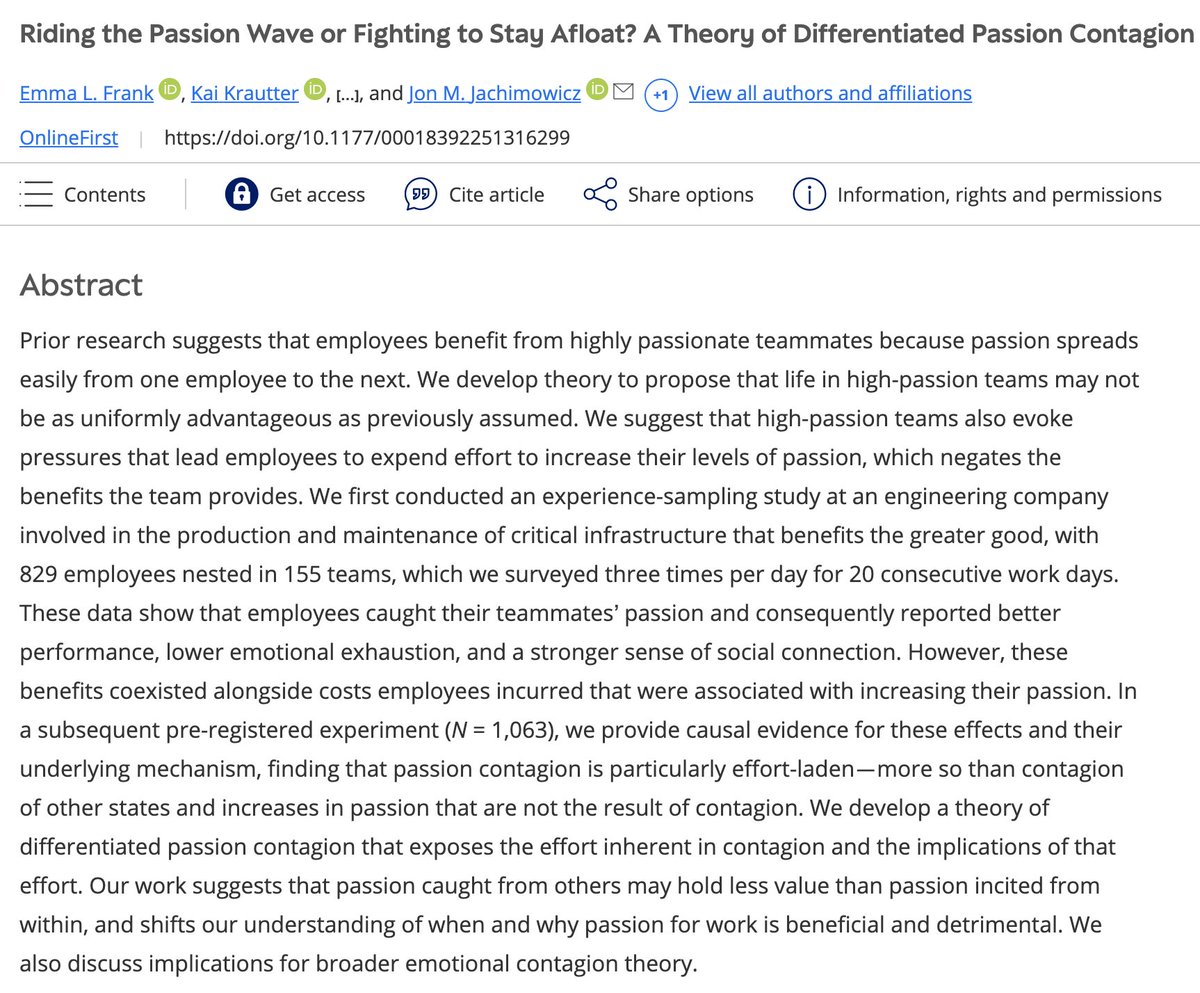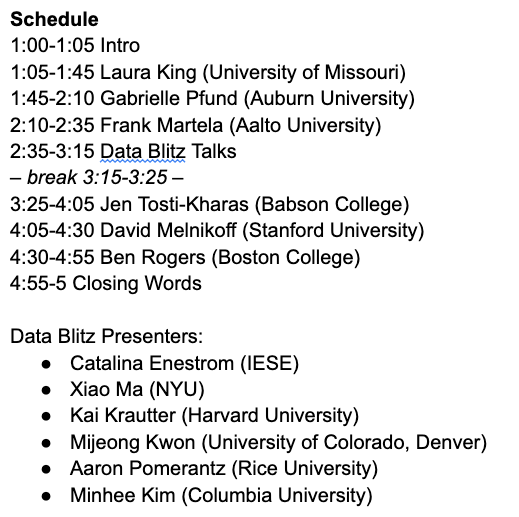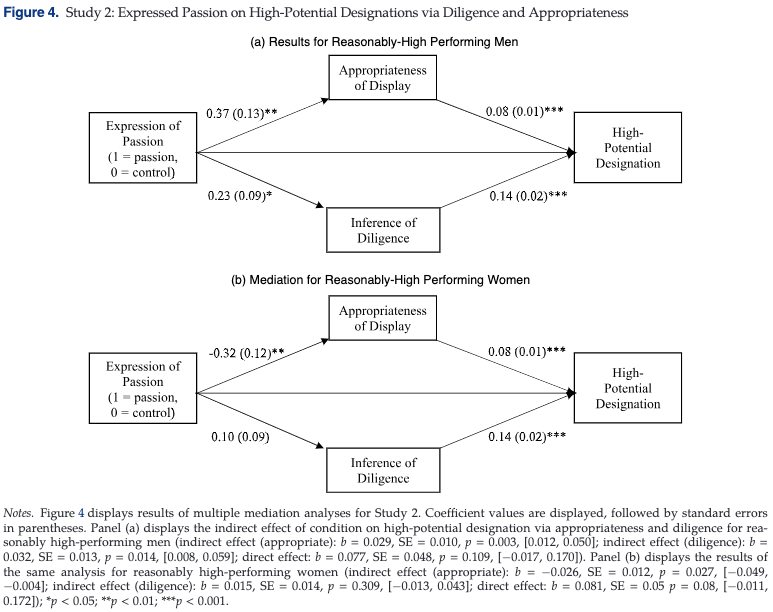
Jon M Jachimowicz
@jonj
Followers
8K
Following
18K
Statuses
5K
Immigrant | Assistant Professor in Org Behavior @HarvardHBS. I study the experience, antecedents, and consequences of passion.
Somerville, MA
Joined May 2011
Prior work argues employees benefit from passionate teammates because passion is contagious—it spreads easily from one employee to the next. In a new paper @ASQJournal, we find that's not quite the full story... 1/8
2
4
36
RT @ThomasGraeber: 🚨 Full-Time Pre-Doc Positions in Zurich Looking for full-time pre-docs (start date b/w June and October '25) to work wi…
0
15
0
Early registration ends tomorrow (January 16, 2025) — spots are running low, sign up for the inaugural Meaning in Life and Work Preconference at @SPSPnews while you can!
Please come join us at the inaugural Meaning in Life and Work Preconference at @SPSPnews in Denver! Hoping to bring together research across psych and OB that has often remained siloed. Schedule below! @GabriellePfund @FrankMartela @DEMelnikoff
0
1
1
For a more practicioner-friendly audience, we summarized the findings from our research in this @HarvardBiz article, including some recommendations for what organizations can do to fix the gendered passion bias.
0
0
1








